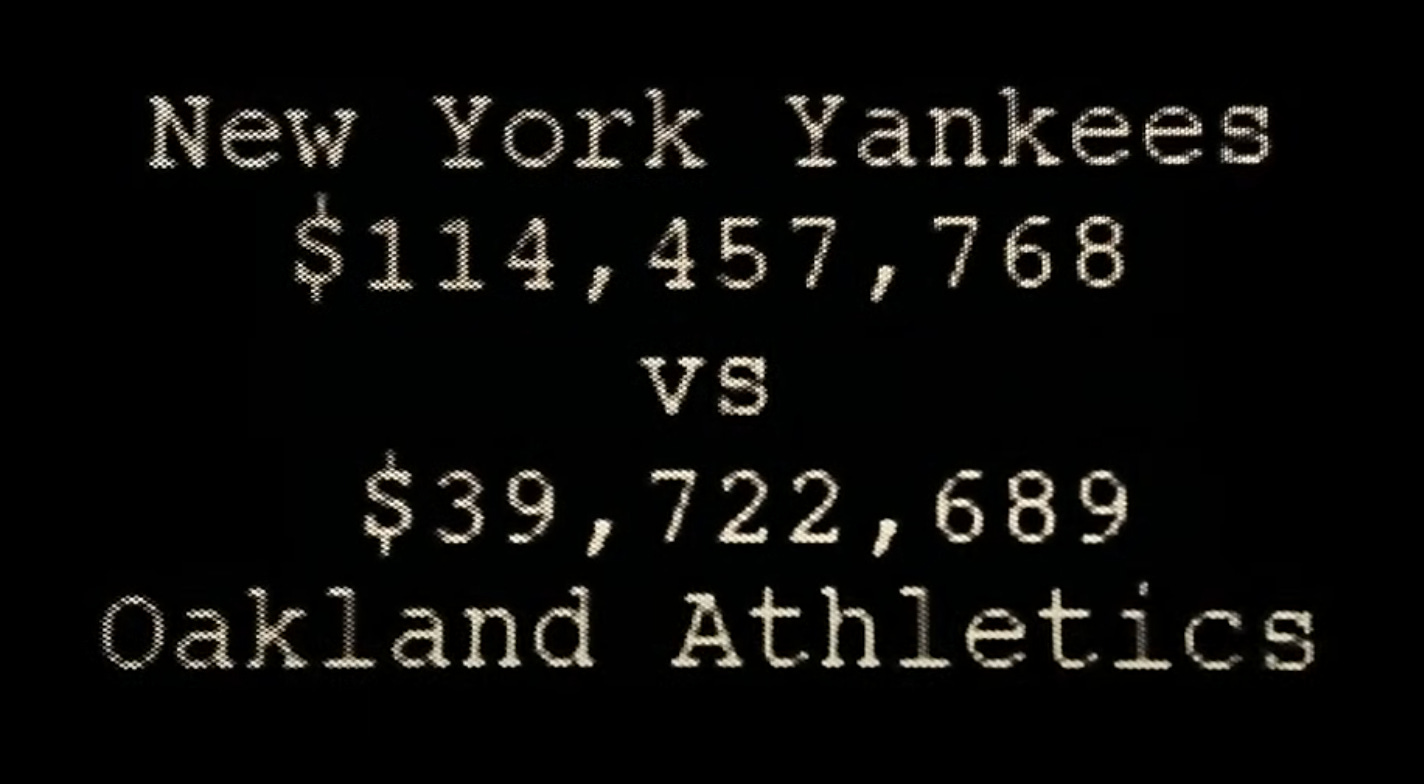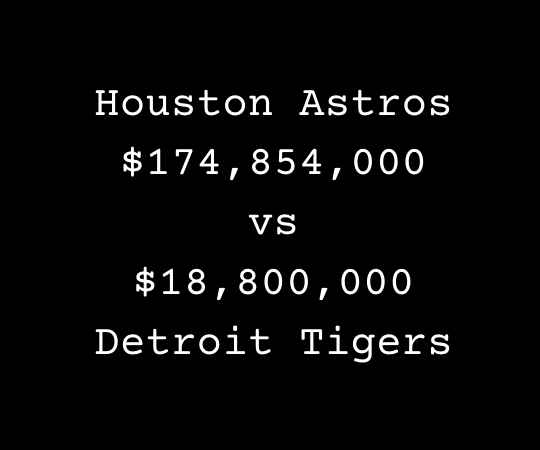The 2024 Detroit Tigers & Moneyball
Oakland A's Eat Your Heart Out
Moneyball, which experts (me) say is the perfect sports movie, opens with the chyron above describing the American League Division Series between the Oakland A’s and the New York Yankees in 2001. The 2001 New York Yankees outspent the Oakland A’s by a rate of nearly 300%.
It demonstrates the challenges the main characters are going to face, and what makes Major League Baseball the most American and infuriating of the four major sports in the United States. It is a sport of haves and have-nots.
There is no salary cap. Players will go to the teams where they can earn the most money, and teams can and will spend as much on talent as ownership want to dole out. If you’re a mid-market team with a mid-market budget, you may as well just print yourself a participation trophy. The odds of you winning a World Series are slim to none. There is no Kirkland’s brand Shohei Ohtani, whose bizarre 10-year $700 million contract feels like a financial crime but isn’t.
Unsurprisingly, the Yankees won the 2001 series, precipitating Oakland’s adoption of the titular philosophy of using statistics and analytics, not the eye test, to find undervalued players that, when brought together, form a competitive team.
Fast forward to the Wild Card Series 23 years later. The Detroit Tigers and the Houston Astros are matched up. Take a quick gander at the payroll of their active 26-man rosters.
That $18.8 million dollar figure is not a typo. The Tigers were outspent by almost ten to one, but unlike the A’s, they won their series.
Detroit’s roster is made up of inexperienced players, minor leaguers called up to play in the show, and veterans who were sent down to the minors to retool their mechanics. The two players the Tigers contractually owe the most money are injured or benched and, for the purposes of this demonstration, not counted above.
Meanwhile, the Astros’ star closer who blew it against the Tigers made more than everyone he was playing against. Combined.
For people like myself who do not follow baseball very closely, it’s tempting to speculate that this is the Tigers taking the Moneyball model and perfecting it, but I would argue that isn’t what this is.
If you read reputable sports journalism outlets like ESPN and local press concerned about things like “access” and “keeping a career” and “enjoying the moment,” you’ll encounter plenty of puff pieces about how this is the byproduct of excellent scouting, excellent coaching, and this nebulous concept of “grit” that’s been pasted onto every quasi-successful Detroit sports team since the Bad Boys hammed it up in the late 80s.
But it’s hard to believe that Scott Harris, the Tigers’ president of baseball operations whose whole job is to put together a roster, wanted to go all in on young and untested players rather than pursue free agents. It seems far, far more likely that he broached the topic with notoriously cheap owner Chris Illitch and Illitch said, “hold on, I left my checkbook in the car,” and then Harris watched from the conference room window as Illitch got into his car and drove away.
From an outsider perspective, reading between the lines, the Tigers’ strategy feels a lot like relying on the cheapest labor available and hunkering down and praying that everything works out. It is not moneyball, it is, to quote the poet Young Thug, fuck-it-we-ball ball.
And, to be clear, I think that’s really awesome and funny and I hope the Tigers keep winning. There is no team easier to root for than a bunch of guys getting paid pennies on the dollar to beat mutli-millionaires while under the tutelage of A.J. Hinch.
That’s the real secret to success. It’s not scouting, it’s not coaching, and it’s not analytics. Between Hinch and Jim Harbaugh, if you want to win big in the state of Michigan, you’ve got to hire a sign stealer.



